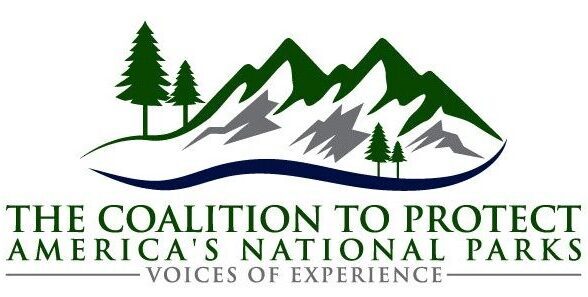 Many people would agree that hunting methods such as killing black bear mothers with cubs in their dens, “harvesting” grizzly bears over bait, “taking” female wolves and coyotes and their pups during denning season, are deeply offensive, particularly on public lands, like the national preserves managed by the National Park Service in Alaska.
Many people would agree that hunting methods such as killing black bear mothers with cubs in their dens, “harvesting” grizzly bears over bait, “taking” female wolves and coyotes and their pups during denning season, are deeply offensive, particularly on public lands, like the national preserves managed by the National Park Service in Alaska.
Yet, Secretary David Bernhardt’s Interior Department has pushed the Park Service to revise its 2015 Alaska national preserve hunting regulations that prohibited these despicable hunting practices.
The National Park Service manages 14 park units in Alaska, including some that Congress established as “national preserves.” Sport hunting in the national preserves was authorized under the 1980 Alaska National Interest Lands Conservation Act (ANILCA). Under ANILCA, Alaska State hunting regulations generally apply in national preserves except when in conflict with federal regulations.
Under the “conservation mandate” of the Organic Act of 1916, the National Park Service manages native wildlife populations to maintain the natural abundance, diversity and distribution of those populations in all park units throughout the country. This includes allowing natural predator-prey relationships and population dynamics to occur. Since passage of ANILCA, almost all of Alaska’s hunting regulations have been consistent with the Park Service’s mission and regulations, and therefore have long been adopted in large part in the NPS-managed national preserves.
However, in recent years the Alaska Department of Fish and Game has expanded methods of hunting and trapping to increase ways to kill predators such as wolves and bears and thereby increase numbers of prey species popular with hunters, mainly caribou and moose. State rules now authorize: taking black bears, including sows and cubs, with artificial light at den sites; harvesting grizzly bears over bait, taking wolves and coyotes (including pups) during the denning season; and killing swimming caribou from boats.
These practices are in direct conflict with the Park Service’s conservation mandate and with ANILCA’s rationale and authorization of sport hunting and trapping in national preserves. In response, in 2015, the Park Service amended its regulations for sport hunting and trapping in the Alaska preserves. The amended rules prohibited the specific hunting practices described above, while leaving the vast majority of state regulations intact in the federally-managed national preserves.
To provide some perspective on these practices, many states allow sport hunting of bears as an appropriate part of a comprehensive wildlife management program. However, resource managers familiar with this situation report that Alaska is unique in the world as a place where brown bear, black bear and gray wolf populations are intentionally targeted for population reductions in efforts to increase human harvests of wild ungulate prey species, and this priority is mandated by state statute.
These specific sport hunting practices violate the longstanding ethical code of hunter conduct, known as “fair chase,” a principle made famous in 1902 by none other than Teddy Roosevelt. As defined by the Boone and Crockett Club, which was co-founded by Roosevelt and George Bird Grinnell in 1887, fair chase is “the ethical, sportsmanlike, and lawful pursuit and taking of any free-ranging wild, native North American big game animal in a manner that does not give the hunter an improper advantage over the game animals.”
Given the National Park Service legal mandate under the 1916 Organic Act, and guided by the provisions of ANILCA, the National Park Service did the right thing in banning these practices in 2015. Reversing that decision now, an action clearly based on politics — not science or sportsmanship — to authorize recreational hunters to “harvest” bear sows and their cubs, or she-wolves and their pups, at their den sites on national preserve lands in Alaska is just plain wrong.
Ironically, the Interior Department website touts the “conservation legacy” of Teddy Roosevelt, while the new hunting rule implements the extreme opposite of his “fair chase” doctrine. Mr. Roosevelt would undoubtedly roll over in his grave if he knew what the U.S. Department of the Interior has just done in the name sport hunting.
Michael Murray retired as superintendent of the Outer Banks Group after a 34-year career with the National Park Service. He is a member of the Coalition to Protect America’s National Parks, an organization of over 1,800 retired, former, or current National Park Service employees who collectively represent over 40,000 years of park management experience.
Published in The Hill May 28, 2020.
